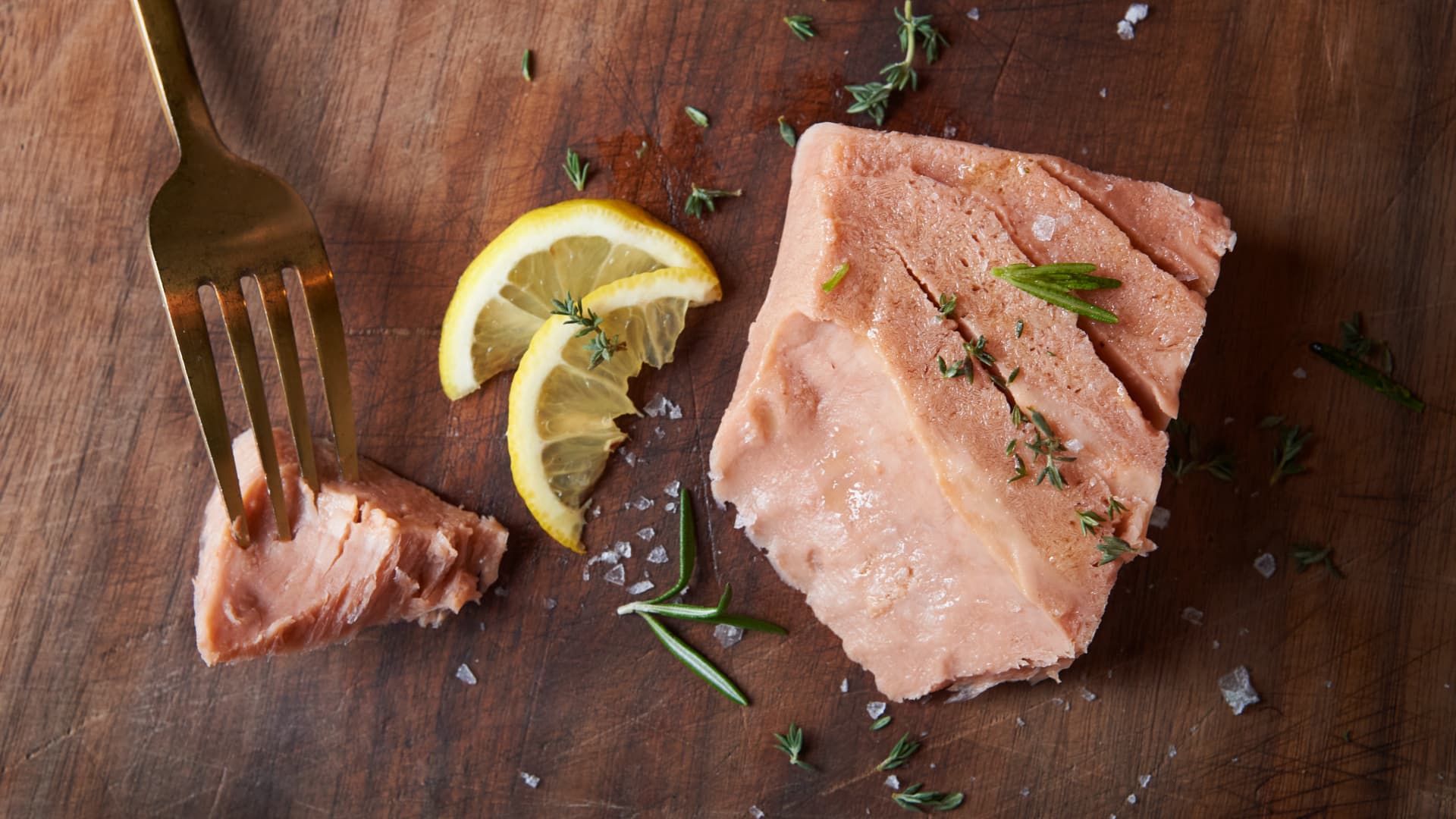While the plant-based burger wars have been waging for several years now, plant-based fish is just in its infancy. But that is about to change, as new contestants enter the mix with various types of faux fish offerings, and investors rush in to fund them.
In the U.S. alone, investment in plant-based, fermented or cell-based fake fish reached $178.2 million in the first half of last year, according fishfarmingexpert.com, putting it on pace to exceed the $306 million in total investment in 2021. Some experts are predicting the sector could become a $1.6 billion business over the next ten years, as more environmentally conscious consumers seek seafood alternatives.
Ocean trawling, which is dragging nets across the ocean floor for fish, produces as much carbon dioxide as air travel, according to a 2021 study published in Nature. And overfishing of wild salmon is putting the species at risk.
As demand for seafood alternatives grows, so too do names like Plantish, Sophie’s Kitchen, Gardein, Good Catch and Toronto-based startup New School Foods, which specializes in plant-based salmon.
“We spent the last 2 to 3 years developing, developing this completely new technology that allows us to create muscle fibers entirely from plants and then to assemble that into larger structures like whole cuts of meat,” said Chris Bryson, co-founder and CEO of New School Foods.
The company claims it “looks, cooks, tastes and flakes like ordinary fish.” We can’t confirm, because it’s not for sale yet. But unlike most plant-based meat products, which are precooked, ground and often formed into patties or nuggets, this is whole and raw.
“You can then cook it in your kitchen and watch it transition from raw to cooked unlike most of the meat alternatives that are out there today,” added Bryson.
The so-called salmon includes both plant and aquatic ingredients, including ocean algae, pea and soy proteins and omega-rich oils like those in seaweed, flax and hemp. Investors say they are hoping it will appeal to those already buying plant-based meats.
New School will launch first in restaurants because roughly 70% of seafood is consumed in restaurants. Bryson said the collaboration with chefs will also help to fine tune the product’s taste and preparation before it hits supermarket shelves.
“If plant-based seafood can get even to 1 to 2% category penetration in North America and Europe, we’re certainly talking about a multibillion-dollar market with very few competitors in that space right now,” said Nick Cooney, Managing Partner at Lever VC, an investment fund focused on alternative protein companies.
Cooney himself was an early investor in Beyond Meat. He noted that unlike fake meat, which is usually more expensive than the real thing, fake fish could be cheaper for consumers since the cost of real fish has skyrocketed.
“And certainly that cost has a big impact on consumer behavior,” he added.
In addition to Lever VC, New School Foods is backed by Blue Horizon, Hatch, Good Startup, Alwyn Capital and Joyance Partners. It’s raised $12 million so far.
For all the latest Business News Click Here
For the latest news and updates, follow us on Google News.

